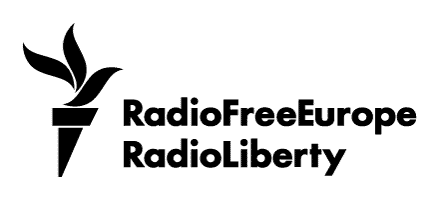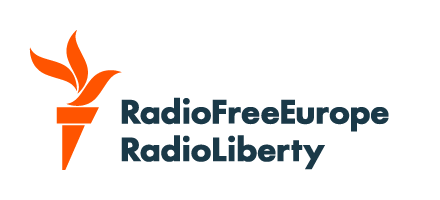Facebook is presenting its new "Graph Search" feature as a long-term project that aims to eventually conduct the kind of searches it says Google is unable to do.
The launch of the search engine was announced on January 15. For now, it is only available to a handful of English-language users in the United States while it is being tested and improved.
But Facebook co-founder Mark Zuckerberg claimed in a promotional video that Graph Search will eventually become one of the pillars of the social network, along with the newsfeed and timeline of each user.
"Today we're really just starting off with a few basic types of things that you can search for: people, photos, places, pages for businesses, and that's just the start," he said. "We wanted to get this out as early as possible so we could get feedback from users, iterate, make the product better, and get it to a point where we can launch this to everyone. We just view this as a project that we're going to be working on for years and years to come. But as it gets more completed, it's just going to be this amazing resource for a lot of people around the world to use."
Zuckerberg added that Graph Search could eventually become a business in its own right. That remark has social media experts making comparisons to rival firm Google, which has become the world's dominant online search engine.
For now, Facebook isn't trying to compete against Google's ability to search everything publicly available on the Internet.
Instead, the Graph Search works only for material posted by the social network's 1 billion users -- including an estimated 240 billion photos as well as videos and other material -- where Google searches often are unable to go.
With Graph Search, each user can look up anything that's been shared with them personally on Facebook -- even if it's not available to the general public. That means different Facebook users will see different results when using Graph Search.
But users will also be able to search any content that any Facebook user has posted for public viewing on the site.
Abuse Concerns
According to Facebook Product Director Tom Stocky, Graph Search will change the way Facebook is used.
"There are really simple things that people want to do," he said. "They want to find all of the photos they've liked. They want to find all the photos of two particular people [or] all the photos of their family. They want to find all of their friends who live in a particular city because they're going to visit there. And those are really hard things to find right now. You have to go to a bunch of different pages and you have to piece all this stuff together. But now [with Graph Search], it's easy. You just say what you want and you get the results."
Some critics warn that Graph Search could be misused.
For example, sex offenders or predators could be able to conduct specific searches to find underage Facebook users to stalk.
Some Facebook users also worry that they will have to reexamine their own privacy settings on photos and posts to ensure that what they've shared with a friend doesn't become easily available to the entire world.
The announcement concerning Graph Search is the first made by Facebook since its initial public offering in May 2012. Industry analysts say it was strategically timed ahead of its declaration of fourth-quarter earnings for 2012.
There have been rising doubts about Facebook's growth potential among some investors, who worry that the number of Facebook users may have peaked.
By designing a search engine that encourages users to add more friends, analysts say Facebook networks become more active, and that encourages users to keep coming back.
In this sense, social media experts say Graph Search appears to be an attempt by Facebook to keep its users coming back so the firm can at least hold onto its current position as the world's most-popular social network.
The launch of the search engine was announced on January 15. For now, it is only available to a handful of English-language users in the United States while it is being tested and improved.
But Facebook co-founder Mark Zuckerberg claimed in a promotional video that Graph Search will eventually become one of the pillars of the social network, along with the newsfeed and timeline of each user.
"Today we're really just starting off with a few basic types of things that you can search for: people, photos, places, pages for businesses, and that's just the start," he said. "We wanted to get this out as early as possible so we could get feedback from users, iterate, make the product better, and get it to a point where we can launch this to everyone. We just view this as a project that we're going to be working on for years and years to come. But as it gets more completed, it's just going to be this amazing resource for a lot of people around the world to use."
Zuckerberg added that Graph Search could eventually become a business in its own right. That remark has social media experts making comparisons to rival firm Google, which has become the world's dominant online search engine.
For now, Facebook isn't trying to compete against Google's ability to search everything publicly available on the Internet.
Instead, the Graph Search works only for material posted by the social network's 1 billion users -- including an estimated 240 billion photos as well as videos and other material -- where Google searches often are unable to go.
With Graph Search, each user can look up anything that's been shared with them personally on Facebook -- even if it's not available to the general public. That means different Facebook users will see different results when using Graph Search.
But users will also be able to search any content that any Facebook user has posted for public viewing on the site.
Abuse Concerns
According to Facebook Product Director Tom Stocky, Graph Search will change the way Facebook is used.
"There are really simple things that people want to do," he said. "They want to find all of the photos they've liked. They want to find all the photos of two particular people [or] all the photos of their family. They want to find all of their friends who live in a particular city because they're going to visit there. And those are really hard things to find right now. You have to go to a bunch of different pages and you have to piece all this stuff together. But now [with Graph Search], it's easy. You just say what you want and you get the results."
Some critics warn that Graph Search could be misused.
For example, sex offenders or predators could be able to conduct specific searches to find underage Facebook users to stalk.
Some Facebook users also worry that they will have to reexamine their own privacy settings on photos and posts to ensure that what they've shared with a friend doesn't become easily available to the entire world.
The announcement concerning Graph Search is the first made by Facebook since its initial public offering in May 2012. Industry analysts say it was strategically timed ahead of its declaration of fourth-quarter earnings for 2012.
There have been rising doubts about Facebook's growth potential among some investors, who worry that the number of Facebook users may have peaked.
By designing a search engine that encourages users to add more friends, analysts say Facebook networks become more active, and that encourages users to keep coming back.
In this sense, social media experts say Graph Search appears to be an attempt by Facebook to keep its users coming back so the firm can at least hold onto its current position as the world's most-popular social network.





